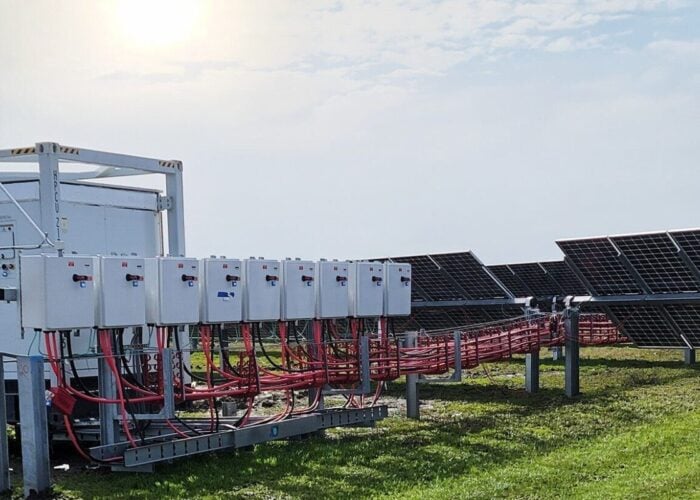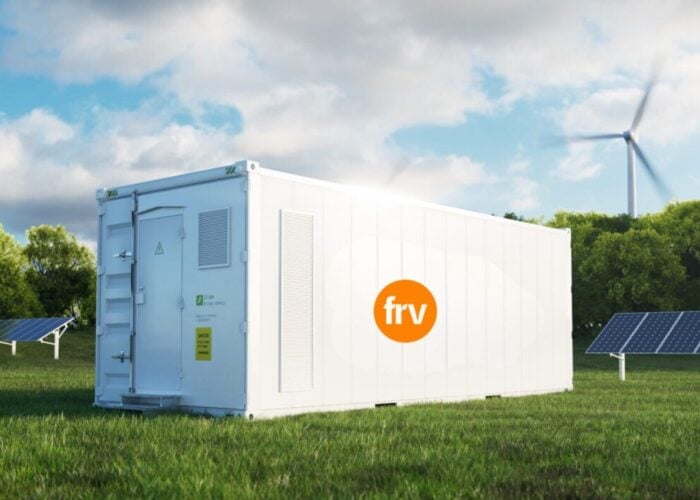Exceptionally low bids for power project tenders are good for business, ACWA Power CEO Paddy Padmanathan has told PV Tech.
While bidding in recent Middle East solar tenders has been low, ACWA has frequently bid lower still. Padmanathan insists that when taking a long-term view, achieving the very lowest price is in the best interests of the company.
Try Premium for just $1
- Full premium access for the first month at only $1
- Converts to an annual rate after 30 days unless cancelled
- Cancel anytime during the trial period
Premium Benefits
- Expert industry analysis and interviews
- Digital access to PV Tech Power journal
- Exclusive event discounts
Or get the full Premium subscription right away
Or continue reading this article for free
“We hold all the records for the lowest costs, for gas power plants, CSP, wind…we don’t do it because we want to erect a monument for ourselves or have the world remember us. It’s actually very self-serving,” he said in an interview at the World Future Energy Summit. “The conventional contracting mentality is to win by one cent, if the gap between you and the next company is more, you have left money on the table. The average contractor has a 3-4 year lifespan, they make a lot of money, or lose a lot of money, then leave. My business model is about collecting money back over 25 years. It’s about investing billions up front, my money, other people’s money, and then over 25 years we get it back.”
In the interest of ensuring that this money can be recouped as easily as possible, ACWA puts itself in the position of its customers.
“You need to keep producing or you don’t get paid, which is fair enough. The offtaker has to be able to afford to keep paying you. We spend a lot of time doing creditworthiness analysis but you should not confuse willingness to pay and creditworthiness, they are very different,” he explained.
“Even the guy with the most money in his pocket is not going to go around dishing it out for nothing. They should willingly pay. Technology costs will continue to come down so sometime in the future they will acquire more power at a lower price, while I am supplying it at this higher price, just collecting my money back, I’m not making extra profit. I need to be worried about the price I am charging upfront enduring decades. Otherwise we lose money. There’s no point saying ‘but I have a robust contract, I’ll sue the pants off them’, nobody makes money out of that.
“Forget market pricing, it’s not about looking around left, right and centre at who else is bidding and trying to come one cent below, forget all that nonsense. The focus should be on cost, cost, cost and getting a reasonable rate of return, not profiteering, not opportunistic,” he added.
This policy is not reserved for its renewable energy assets. A successful 2008 bid for an oil-fired power plant in Saudi Arabia came in 31% lower than the nearest competitor. Its first foray into renewables, the Noor 1 CSP plant in Morrocco, saw the company bid 18 cents per kWh, with the next bid at 24 cents.
“We could have done 30, 40, 50MW renewable plants forever and nobody would have noticed us. We burst into renewables in 2011 with Noor 1. The technology was very expensive, it had been kept expensive by a handful of people working on it,” said Padmanathan. “CSP projects had previously been supported by FiTs. Then the Morocco government launched a competitive tender for 160MW of CSP with three hours of molten salt storage.”
“Everybody said we were crazy, we didn’t know what we were doing, it’ll never work, who are these people? Nobody figured out that we were driving down renewable costs. All we were doing is living our mission to deliver power and water at the lowest cost.”
The company has since signed a PPA in Dubai for a CSP project at a rate of 7.3 cents per kWh.






